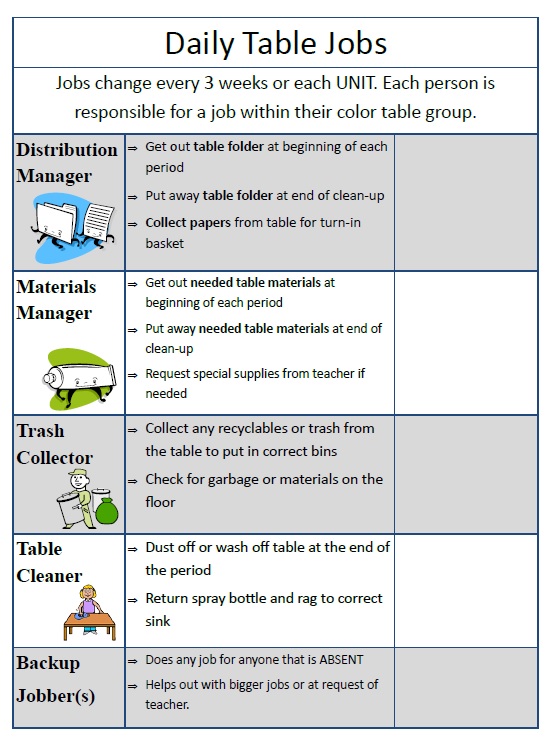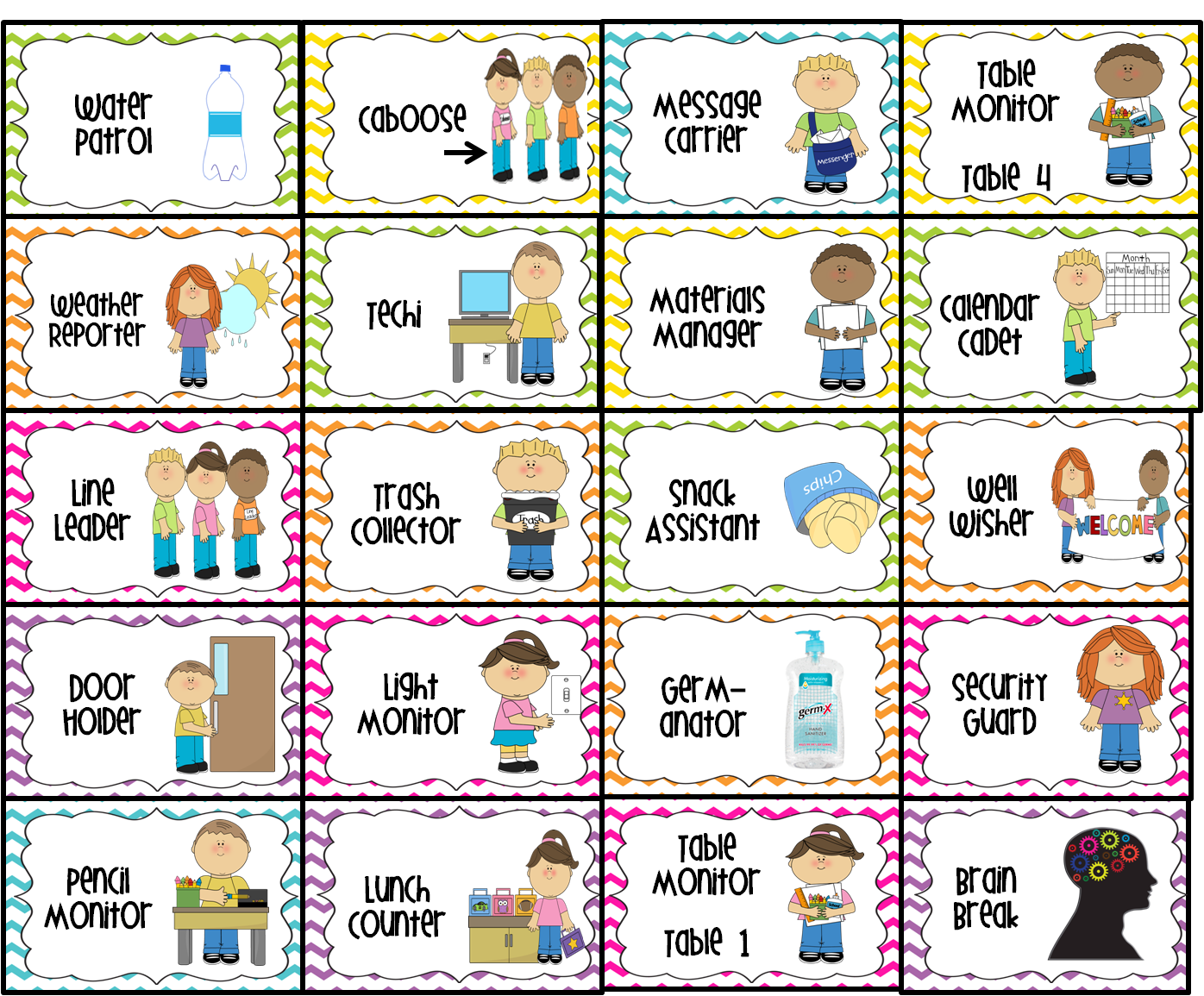
The Benefits of Implementing Table Jobs

Table jobs in the classroom have become increasingly popular as they offer numerous benefits for both students and teachers. By assigning specific roles to each student, table jobs promote responsibility, teamwork, and a sense of ownership within the classroom. In addition to these social and emotional benefits, table jobs also contribute to a more organized and efficient learning environment.
1. The Role of the Table Captain

The table captain is responsible for leading the group and ensuring that everyone is on task. This role helps develop leadership skills and encourages students to take initiative. The table captain can assist the teacher in distributing materials, collecting assignments, and maintaining a tidy workspace. This job promotes accountability and encourages students to be proactive in their learning.
2. The Materials Manager

The materials manager is in charge of organizing and distributing necessary materials for the class. This includes textbooks, worksheets, art supplies, and any other resources needed for the day's activities. By taking on this responsibility, students learn the importance of being prepared and develop organizational skills. The materials manager also helps foster a sense of cooperation among the group as they work together to ensure everyone has what they need.
3. The Timekeeper

The timekeeper is responsible for keeping track of the classroom schedule and ensuring that activities are completed within the allocated time. This role helps students develop time management skills and encourages them to stay focused and productive. The timekeeper can use visual aids, such as a timer or a clock, to help the group stay on track. By taking on this responsibility, students learn the value of punctuality and the importance of managing their time effectively.
4. The Recorder

The recorder is in charge of documenting important information discussed during class. This may include taking notes, summarizing discussions, or recording key points from a presentation. By fulfilling this role, students practice active listening and critical thinking skills. The recorder's notes can also serve as a valuable resource for the group when reviewing or studying for exams. This job encourages students to engage with the material and take ownership of their learning.
5. The Peer Helper
The peer helper provides assistance and support to their fellow group members. This can involve answering questions, explaining concepts, or offering guidance when someone is struggling. By taking on this role, students develop empathy, patience, and communication skills. The peer helper not only benefits their peers but also reinforces their own knowledge and understanding of the subject matter. This job encourages collaboration and fosters a positive and supportive learning environment.
6. The Cleaner

The cleaner is responsible for maintaining a clean and organized workspace. This includes tidying up after activities, wiping down tables, and ensuring that the classroom is kept neat and presentable. By taking on this role, students learn the importance of cleanliness and develop a sense of responsibility for their environment. The cleaner also contributes to a positive classroom atmosphere by creating a pleasant and inviting space for learning.
7. The Facilitator

The facilitator helps to guide discussions and group activities. This role involves ensuring that everyone has a chance to contribute, maintaining a respectful and inclusive environment, and keeping the group focused on the task at hand. The facilitator encourages active participation and promotes effective communication skills. By taking on this responsibility, students learn how to navigate group dynamics and develop leadership qualities.
8. The Motivator
The motivator's role is to inspire and encourage their group members. This can involve providing positive reinforcement, offering words of encouragement, or celebrating achievements. The motivator helps create a supportive and motivating atmosphere where students feel empowered to take risks and strive for success. By fulfilling this role, students develop empathy, interpersonal skills, and emotional intelligence.
Conclusion
Implementing table jobs in the classroom has proven to be an effective strategy for promoting a positive and productive learning environment. By assigning specific roles to each student, table jobs foster a sense of responsibility, teamwork, and ownership. Students benefit from developing important life skills such as leadership, organization, time management, active listening, and collaboration. These skills not only contribute to their academic success but also prepare them for future endeavors. Table jobs create a sense of community within the classroom and empower students to take an active role in their own education.